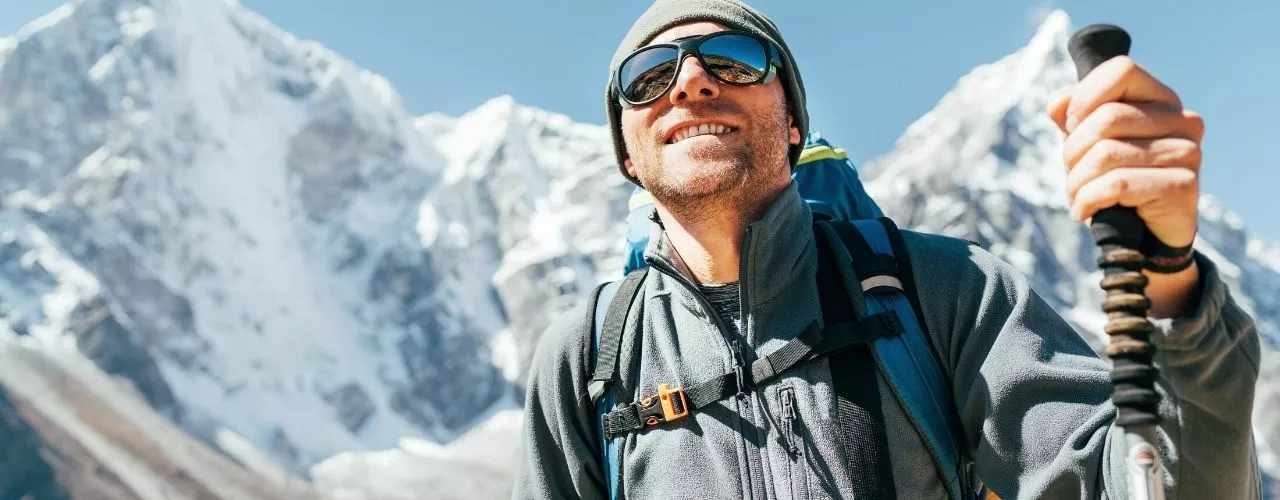
Introduction: Importance of Hydration in the Mountains
As an avid hiker and outdoor enthusiast, I've experienced firsthand the importance of staying properly hydrated when exploring the mountains. Whether you're an amateur or a seasoned mountaineer, keeping your body well-hydrated is crucial to both your performance and your well-being. In this article, I'll dive into the role of hydration in preventing mountain sickness, a condition that can have serious consequences if not addressed.
Understanding Mountain Sickness
Mountain sickness, also known as Acute Mountain Sickness (AMS), is a condition that can occur when you ascend to higher altitudes too quickly. The reduced air pressure and lower oxygen levels at high altitudes can lead to symptoms such as headaches, nausea, dizziness, and shortness of breath. In severe cases, it can even progress to life-threatening conditions like High-Altitude Cerebral Edema (HACE) or High-Altitude Pulmonary Edema (HAPE).
How Hydration Helps Prevent AMS
Staying hydrated plays a significant role in preventing AMS because it helps your body acclimate to the altitude more effectively. When you're properly hydrated, your body can better transport oxygen through the bloodstream, combat fatigue, and maintain optimal brain function. Additionally, dehydration can worsen AMS symptoms, making it even more important to stay on top of your fluid intake.
Water: The Ultimate Elixir
While there are many beverages available, water is the best choice for staying hydrated in the mountains. It's calorie-free, readily available, and your body can easily absorb it. Aim for a minimum of 2-3 liters per day, and increase this amount when engaging in physical activities or when the weather is hot and dry.
Signs of Dehydration
It's crucial to recognize the signs of dehydration, as they can mimic or exacerbate AMS symptoms. Common indicators of dehydration include dark yellow urine, increased thirst, dry mouth, fatigue, and dizziness. If you experience any of these symptoms, it's essential to increase your fluid intake immediately.
Hydration Tips for Mountain Adventures
Now that we understand the importance of hydration in preventing AMS, let's discuss some practical tips for staying hydrated during your mountain excursions.
Start Hydrating Before You Go
Don't wait until you're on the trail to begin hydrating. Start increasing your water intake a few days before your trip to ensure that your body is well-hydrated before heading to higher altitudes.
Carry a Reliable Water Source
Invest in a high-quality, reusable water bottle or hydration system to carry with you on the mountain. Make sure it's easily accessible and monitor your intake throughout the day. Refill it whenever you have the opportunity, as water sources may be scarce at higher elevations.
Hydrate with Electrolytes
When you sweat, you lose not only water but also essential electrolytes like sodium, potassium, and magnesium. Consider adding electrolyte supplements or sports drinks to your hydration routine to replenish these vital minerals and help maintain proper fluid balance in your body.
Don't Rely on Thirst Alone
By the time you feel thirsty, you may already be dehydrated. Make it a habit to drink water regularly, even if you don't feel thirsty. Set reminders or use a hydration app to keep track of your intake and ensure that you're staying properly hydrated.
Conclusion: Prioritize Hydration for a Safe and Enjoyable Mountain Experience
As we've discussed, staying hydrated plays a crucial role in preventing mountain sickness and ensuring a safe, enjoyable experience in the great outdoors. By understanding the importance of hydration, recognizing the signs of dehydration, and following practical hydration tips, you'll be well-equipped to tackle any mountain adventure. So grab your water bottle, lace up your hiking boots, and explore the beauty of the mountains while staying healthy and hydrated!





5 Comments
Listen up, folks – if you think you can conquer a peak without drinking enough water, you’re living in a delusion! 🚰💥 The mountains will chew you up and spit you out, and you’ll be the sorry excuse everyone blames for “lazy hikers” ruining our glorious wilderness! 🇺🇸🌲 Stay hydrated or face the wrath of altitude, you hear me? 🙅♂️💦
Hydration is key stay safe out there
Hey, I totally get how scary AMS can feel – it’s like your body is shouting for help, and you just want to hug a tree and cry 😢 sorry if i sound weird but staying on top of fluids really does the trick, plus a little electrolyte mix can save the day 😊
Oh, please, let’s all gather around the campfire and listen to yet another self‑appointed “expert” proclaim that water is the ultimate miracle drug for mountain sickness. It’s not like the body has any other physiological mechanisms to cope with hypoxia, right? Obviously, if you sip a couple of liters of H₂O, the reduced oxygen pressure will magically disappear. The reality, however, is that altitude sickness is a complex, multifactorial condition that cannot be reduced to a simplistic hydration mantra. You can’t outrun the effects of low barometric pressure by simply drinking more liquid than a camel. Moreover, the notion that dehydration is the primary culprit is a dangerous oversimplification that ignores genetic predisposition, acclimatization schedules, and even proper pacing. Anyone who suggests you can “just drink more” is basically telling you to ignore centuries of mountaineering research. It’s almost comical how some hikers act like they’ve discovered the holy grail of AMS prevention by adding an electrolytes packet to their water bottle. Let’s not pretend that electrolytes magically up‑regulate cerebral blood flow; they merely help maintain plasma volume. Of course, staying hydrated does support overall physiological function, but it is not a panacea. If you think a bottle of soda will keep you from the dizzy spell that comes with 3,000 meters, you’re living in a fantasy. The proper approach involves gradual ascent, adequate rest, and, if necessary, medical prophylaxis. So, before you go bragging about your 2‑liter intake, remember that the mountains respect no one’s ego. In short, respect the science, respect the altitude, and respect your own limits. Drink water, yes, but don’t let that be the only thing on your checklist.
Thank you for highlighting the critical role of proper fluid intake in high‑altitude environments. To expand on your guidance, I recommend incorporating a balanced electrolyte solution containing sodium, potassium, and magnesium, as these minerals assist in maintaining osmotic balance and preventing hyponatremia. Additionally, monitoring urine color is an easy, reliable indicator of hydration status; a light straw hue generally signifies adequate fluid levels. For pre‑ascent preparation, begin increasing water consumption two to three days prior to departure to ensure optimal plasma volume. Finally, consider using a portable altimeter or a pulse‑oximeter to track physiological responses during ascent, thereby enabling timely adjustments to hydration and pacing strategies. By integrating these evidence‑based practices, hikers can further reduce the risk of acute mountain sickness while enjoying a safe and rewarding mountain experience.